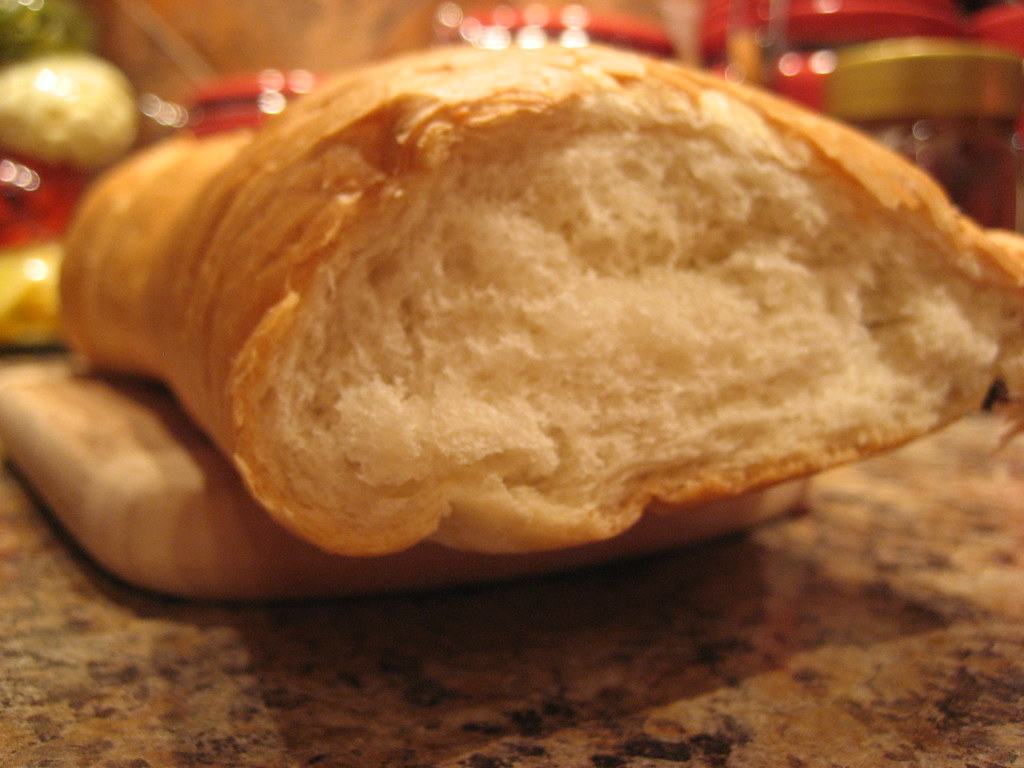If you’re a bread lover, you know the struggle of trying to stay healthy while indulging in fresh bread. While bread may be a staple food in many cultures, it is still important to know its nutritional content, including the calorie count.
In this article, we’ll dive into the topic of French bread calories per 100g and explore the nutritional value, health benefits, and risks associated with this tasty bread.
French bread, also known as baguette, is a long, thin loaf of bread that originated in France. It is made with simple ingredients like flour, salt, water and yeast, but the taste and texture are what make this bread so popular.
With a crispy crust on the outside and a soft, chewy interior, French bread is the perfect snack for any time of day. However, it is important to know that French bread calories can add up quickly, which is why it is important to be mindful of your consumption.
French Bread Calories per 100g
Calories are a unit of energy that measure the amount of energy in a food or drink. The energy in food comes from three macronutrients: carbohydrates, protein, and fat.
French bread is primarily made up of carbohydrates, which are the main source of calories in this bread.
So, how many calories are in French bread per 100g? On average, French bread contains around 265 calories per 100g. This may vary depending on the brand and recipe, but it is a good estimate.
When compared to other bread varieties, French bread calories are relatively high. Whole wheat bread, for example, contains around 247 calories per 100g, while white bread contains around 266 calories per 100g.
Other high-calorie breads include sourdough, rye, and ciabatta. So, if you’re counting calories or trying to watch your weight, it may be best to limit your intake of French bread and choose other bread options.
Factors that Influence French Bread’s Calorie Content
The calorie content of French bread may vary based on several factors, including the size of the bread, the recipe used, and the type of flour used. A larger piece of bread will have more calories than a smaller piece, and bread made with white flour will have more calories than bread made with whole wheat flour.
Additionally, the amount of sugar and oil added to the recipe can also increase the calorie count.
Nutritional Value of French Bread
While French bread is high in calories, it also has some nutritional value. It contains several essential vitamins and minerals, including vitamin B1, vitamin B2, and iron.
French bread is also a good source of fiber, which is important for digestive health. However, it is important to note that French bread is generally not fortified with additional nutrients.
Health Risks Associated with French Bread
While French bread can be a delicious and filling food, excess consumption can lead to some health risks. The high calorie and carbohydrate content can contribute to weight gain, especially if it is consumed in large quantities.
Additionally, French bread can cause spikes in blood sugar levels, which can be problematic for those with diabetes or those at risk of developing the disease. Finally, the low fiber content of French bread can also cause digestive problems for some people.
Serving Size and Calorie Count
When it comes to French bread, serving size matters. A standard serving size for French bread is one ounce, or about a quarter of a baguette.
This serving size contains around 76 calories. However, most people consume much larger portions of French bread, which can lead to a high calorie intake.
It is important to be mindful of portion sizes and to cut or measure your bread before consuming it.
Ways to Reduce French Bread Calories
If you’re looking for ways to reduce the calorie count of your French bread, there are a few options.
Firstly, you can consider choosing a different type of bread that is lower in calories, such as whole wheat or multigrain. You can also make healthier versions of French bread at home by using whole wheat flour, reducing the amount of sugar, and avoiding adding extra oils or fats.
Finally, you can reduce the calorie count of French bread by simply reducing your portion size or eating it less frequently.
Conclusion
When it comes to French bread calories per 100g, it is important to be mindful of what you’re consuming. While French bread may be a delicious and filling food, it is also high in calories and can contribute to weight gain and other health risks.
By being aware of portion sizes, choosing healthier bread options, and making healthier versions at home, you can still enjoy French bread while maintaining a balanced diet.

